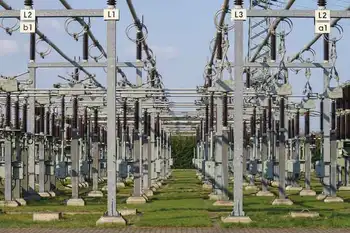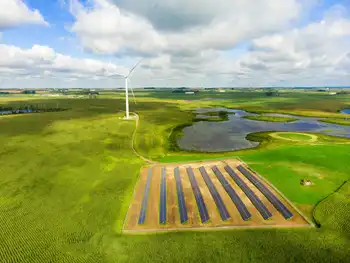Drax Power's biomass plant clears local planning
The final decision on the £700 million (US$1.2 billion) Ouse Renewable Energy Plant, which will have a power generation capacity of 290 megawatts (MW), now lies with the government's Department for Energy and Climate Change (DECC), which is responsible for granting permission for any projects in excess of 50 MW.
The plant will be located next to Drax's 4-gigawatt power plant in Selby, North Yorkshire, the UK's largest coal-fired plant, responsible for about 7% of the UK's electricity. A decision about when construction will begin is expected next year. The aim is to have the plant running by 2013, generating enough renewable power for more than 500,000 homes. The facility is expected to offset 1.8 million tonnes of carbon-dioxide emissions each year.
The plant will burn a variety of biomass fuels, including specially grown energy crops, recovered timber and paper, forestry residues and agricultural byproducts. According to Drax, the power output of the plant will be the equivalent of that generated by 460 large-scale wind turbines.
"The UK needs biomass-fired power stations to help meet the national renewable energy targets," said Brian Restall, project manager at Drax Power. "We are extremely pleased that both the local and county planning authorities have offered such unequivocal support to Drax's renewable energy growth strategy. The plant offers excellent prospects to people in the region."
If the plant gets the final go-ahead from DECC, it will be the first of three biomass facilities planned for the site and which Drax plans to have up and running by 2016. Drax has earmarked more than £2 billion (US$3.3 billion) for the projects. Drax has signed a construction and turbine supply agreement for the three plants with joint venture partner Siemens AG. Drax will manage and operate the plants and own 60% of the venture.
In July, DECC granted permission to MGT Power Limited to build a similarly sized biomass plant at Teesport. The £500 million (US$829 million) project will be ready in 2012 and will generate enough power for 600,000 homes.
Related News

Manitoba Government Extends Pause on New Cryptocurrency Connections
WINNIPEG - The Manitoba government has temporarily suspended approving new electricity service connections for cryptocurrency mining operations. The decision comes as the province grapples with the cryptocurrency industry's growing energy demands and potential impact on electricity rates for residents and businesses.
The Original Pause
The pause was initially imposed in November 2022 due to concerns that the rapid influx of cryptocurrency mining operations could place significant strain on the province's electrical grid. Manitoba Hydro, the province's primary electric utility, warned that unregulated expansion of the industry could necessitate billions of dollars in infrastructure investments, potentially driving up electricity…




